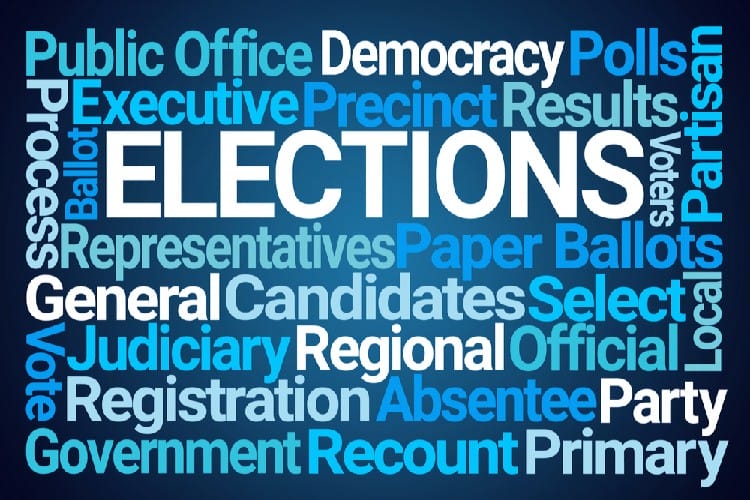
Yes, this is an election year and a biggie. We will be choosing a President, along with every House seat and many Senate seats. Not to mention all of the local elections. If you’ve been wondering what you can do to get involved in the process or you’re already active but want to do more, wonder no more.
There are a myriad of ways to get involved in politics and causes at both the national and local level and make a political impact. A big plus is you get to meet a lot of like-minded individuals who share your passion. But, the easiest and most important thing you can do is VOTE and encourage all your friends and family to do the same!
This year, however, with the threat of the coronavirus, how we volunteer will undoubtedly be changed. Most activities will likely be done from your home as opposed to a campaign’s headquarters. Here are some ideas.
What You Can Do To Make a Political Impact
CAMPAIGNS
VOTE! This is by far the simplest thing you can and must do to participate in the political process. Educate yourself on the candidates and the issues and then, if you haven’t already done so, register to vote. And even if you have registered in the past, it’s always a good idea to verify that you’re still in the system. There are multiple ways to register and check your status.
You can call your local voter registration office or go on online at Vote.org. Currently, 39 states plus the District of Columbia allow online voter registration, and if your state is one of them, you can go to Vote.gov and enter your state to be redirected to the right site to register. If your state doesn’t offer online voter registration, you can register to vote by mail with the National Mail Voter Registration Form. You can also register in person at your local board of elections office. Just make sure you check with the U.S. Vote Foundation or your state or territory’s election office to find your state’s deadline for registration for an upcoming election.
A lot of voting this year will be by mail and absentee ballots. Amid the pandemic, more states have made it easier for people to vote by mail. According to the Open Source Election Technology Institute, 46 states now offer every eligible voter the option to mail in their ballot. To vote by mail, you can start by checking your state’s absentee ballot rules and apply for your ballot. As an FYI, the number of actual fraudulent mail-in ballots has been found to be 0.0025% — too statistically small to actually make a difference.

Help others with voting plans and getting to the polls. One simple way to get prepared for November is to make your day-of voting plan. When are you going to the polls? How are you getting there? Figure all that stuff out now. Find someone who might need a ride or assistance getting to the polls and help them get there. Also, remind all your family and friends to vote.
Make a donation. You can get involved in politics from the comfort of your home by donating to political campaigns or advocacy groups. Chances are you’ve already received emails or seen ads on social media to donate to campaigns. In a calendar year, each person can donate up to $2,800 for individual candidates; $5,000 to PACs – political action committees; $35,500 to national political parties; and $10,000 to state and local parties. You can also give unlimited amounts of money to super PACs, which raise and spend money independent of political candidates.
Volunteer on a political campaign. This can be for both local and national campaigns. There are a myriad of ways to get involved and these have changed over the years. You can do phone banking, send text messages, canvass door-to-door (yes, they are doing this with social distancing), write postcards/letters, put out yard signs, and table. You will first need to decide which candidate(s) you want to advocate for and contact their office or join a group like Indivisible that is both local and national. They may tell you which activity they need most help with or you can let them know which method you’re most comfortable with. If making phone calls is not your strong suit, let them know. There is always plenty to do. Also be sure to like/follow candidates on social media.
Hosting or supporting candidate meet and greet/fundraisers. Even with the pandemic, you can host an event. They can be done virtually via zoom or outside, maintaining social distance. This is a great way to introduce friends and neighbors to candidates you support and for a candidate to get his/her name out there and talk about their positions. These events can be coffees or more formal fundraisers.
Get civically involved in your local community. Types of activities include volunteering for voter registration drives and at a polling place on election day. Other options include attending local government meetings and canvassing for the census bureau.
Run for office yourself. If you want to go beyond the above steps, you can always run for office yourself. Just think about the number of people who had the courage to put themselves out there in the 2018 elections and look how many won! Many politicians begin their careers in local government, running for offices on a local school board or city council and then transition to state and national offices. There are many resources out there who are happy to assist in getting you started.
Don’t despair. If you feel overwhelmed, you are not alone, especially if this is your first time getting involved. Besides voting and encouraging friends and family to do likewise, start by just picking one thing to do and do it. Make it something you’re comfortable with to start out and see it to completion. Then, move on to another task, maybe stretching your comfort zone. Doing this can be very empowering!

ISSUES
Join a nonprofit organization. Unlike a political campaign, a nonprofit tends to organize around advocating for a specific issue. If you have a cause that is really important to you like climate change, racial injustice, or women’s issues, there is undoubtedly a group to support you. For instance, Moms Demand Action provides support to politicians who propose policies to control gun violence. Other nonprofits include the National Resource Defense Council and the League of Women Voters. Volunteer opportunities include advocating to your legislators, attending meetings, fundraising, and staffing offices of the organization.
Campaigns for ballot initiatives. Initiatives such as minimum wage, voting rights, and redistricting need help gathering signatures. You can find a good state-by-state list of them online at Ballotpedia.org.
Lobby your legislators at all levels. If there is an issue that is important to you and you’d like to see some action taken, call your legislators. Actually speaking to someone in the office is the best, but if you’re not comfortable doing that you can always send an email. Make sure you let them know you are a constituent.
Find or Create a Group. You are not alone in wanting to help and make a difference in the country and the world. There are many examples of how making your voice heard gets results. From peaceful protests to people gathering outside politicians’ offices to asking questions at town halls, working together can make all the difference in seeing change. Just do an internet search of a topic you are interested or talk to friends.
Here are a few national organizations working to make a difference in American politics.
Rock The Vote
Rock the Vote is a nonpartisan nonprofit dedicated to building the political power of young people. In 1990, music executives founded Rock the Vote in response to censorship of hip-hop artists. It’s evolved into an organization with over 25 years of experience engaging youth to care about the ballot, voting rights, and participating in democracy. They are looking for volunteers to work on everything from policy research to phone banking.
When We All Vote
Co-chaired by Michelle Obama, Lin-Manuel Miranda, Janelle Monáe, and others, this is a new national, nonpartisan, not-for-profit group. Its goal is to bring together citizens, institutions, and organizations to spark a conversation about our rights and responsibilities in shaping our democracy; the responsibility of registering and voting. When We All Vote is looking for volunteers leading up to Election Day.
League of Women Voters
The LWV has been around for 100 years since women got the right to vote! The League is nonpartisan; they don’t support specific candidates or political parties at any level of government. The group encourages informed and active participation in government, works to increase understanding of major public policy issues, and influences public policy through education and advocacy.

The LWV is active at not only the national level, but also with state and local governments. Many cities have local groups that you can get involved with. They also have a site VOTE 411 that has all the information you need for voting.
Sister District
Founded by a small group of women, Sister District helps critical state races (across the nation) where Democratic control hangs in the balance. You will be connected with a local team, matched with a strategically important race (it could be anywhere in the country), and given specific actions to take to help win the race in that state.
When November 3rd rolls around, just get out there and vote. Bring a friend or perhaps drive a neighbor or relative to the polls. But, until then, roll up your sleeves and help make democracy work.
What are you doing this year to make a political difference?

Sherry is one of the TriWivesClub and LifeDoneWell co-founders and contributes to multiple blogs. She is a former co-owner of the California Apparel News and had a career in the healthcare industry. Her passions include traveling, real food, the environment, and animal rescue/welfare. She lives a healthy lifestyle and has been a vegetarian since 1987. She and her husband are parents to two rescue pups and reside in Connecticut.











